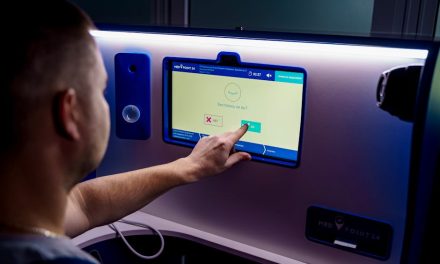Table of Contents
- Introduction
- Strategies for Building a Positive Company Culture
- Importance of Regular Feedback and Communication
- Implementing Employee Recognition Programs
- Creating Opportunities for Professional Development
- Addressing Work-Life Balance and Employee Wellbeing
- Utilizing Technology to Enhance Employee Engagement
- Q&A
- Conclusion
“Empower your team, elevate your success: 7 Goals for HR Professionals to Improve Employee Engagement”
Introduction
Employee engagement is a crucial aspect of any successful organization. HR professionals play a key role in fostering a positive work environment and ensuring that employees feel valued and motivated. To improve employee engagement, HR professionals should focus on the following 7 goals:
1. Develop a strong company culture
2. Provide opportunities for growth and development
3. Foster open communication and feedback
4. Recognize and reward employees for their contributions
5. Promote work-life balance
6. Support employee well-being and mental health
7. Encourage teamwork and collaboration
By prioritizing these goals, HR professionals can create a more engaged and productive workforce, leading to increased job satisfaction and overall organizational success.
Strategies for Building a Positive Company Culture
Employee engagement is a critical aspect of any successful organization. When employees are engaged, they are more productive, motivated, and committed to their work. As HR professionals, it is our responsibility to create a positive company culture that fosters employee engagement. Here are seven goals that HR professionals can strive to achieve in order to improve employee engagement within their organizations.
First and foremost, HR professionals should focus on creating a strong sense of purpose and direction within the organization. Employees want to feel like they are part of something bigger than themselves, and it is up to HR to communicate the company’s mission and values effectively. By aligning employees’ personal goals with the organization’s objectives, HR professionals can help employees see the impact of their work and feel more engaged in their roles.
Secondly, HR professionals should prioritize open and transparent communication within the organization. Employees want to feel informed and involved in decision-making processes that affect them. By fostering a culture of open communication, HR professionals can build trust and create a sense of belonging among employees. Regular feedback sessions, town hall meetings, and employee surveys are all effective ways to ensure that communication flows freely within the organization.
Another important goal for HR professionals is to provide opportunities for growth and development. Employees want to feel like they are continuously learning and advancing in their careers. HR professionals can support employee growth by offering training programs, mentorship opportunities, and career development resources. By investing in employees’ professional development, HR professionals can show that they value their employees and are committed to helping them succeed.
In addition to growth opportunities, HR professionals should also focus on creating a positive work environment that promotes work-life balance. Employees who feel overworked and stressed are less likely to be engaged in their work. HR professionals can support employee well-being by offering flexible work arrangements, wellness programs, and mental health resources. By prioritizing work-life balance, HR professionals can help employees feel more satisfied and engaged in their roles.
Furthermore, HR professionals should strive to recognize and reward employees for their hard work and contributions. Employees want to feel appreciated and valued for their efforts. HR professionals can implement recognition programs, performance bonuses, and employee appreciation events to show employees that their work is recognized and celebrated. By acknowledging employees’ achievements, HR professionals can boost morale and motivation within the organization.
Another important goal for HR professionals is to foster a sense of community and belonging within the organization. Employees want to feel connected to their colleagues and the company as a whole. HR professionals can create a sense of community by organizing team-building activities, social events, and volunteer opportunities. By encouraging collaboration and camaraderie, HR professionals can help employees feel more engaged and connected to their work.
Lastly, HR professionals should continuously monitor and evaluate employee engagement levels within the organization. By collecting feedback, analyzing data, and measuring employee satisfaction, HR professionals can identify areas for improvement and implement strategies to enhance employee engagement. Regularly assessing employee engagement allows HR professionals to track progress, make informed decisions, and adapt their approach to meet employees’ needs.
In conclusion, improving employee engagement is a multifaceted process that requires dedication, effort, and strategic planning. By setting goals to create a strong sense of purpose, foster open communication, provide growth opportunities, promote work-life balance, recognize and reward employees, build a sense of community, and monitor engagement levels, HR professionals can create a positive company culture that enhances employee engagement and drives organizational success.
Importance of Regular Feedback and Communication

Employee engagement is a critical aspect of any successful organization. When employees are engaged, they are more productive, motivated, and committed to their work. One of the key factors that contribute to employee engagement is regular feedback and communication from HR professionals. In this article, we will discuss seven goals that HR professionals can set to improve employee engagement through effective feedback and communication.
First and foremost, HR professionals should aim to create a culture of open and honest communication within the organization. This means encouraging employees to share their thoughts, ideas, and concerns without fear of reprisal. By fostering a culture of open communication, HR professionals can build trust and strengthen relationships with employees.
Secondly, HR professionals should strive to provide regular feedback to employees. Feedback should be specific, constructive, and timely. By providing feedback on a regular basis, HR professionals can help employees understand their strengths and areas for improvement. This, in turn, can lead to increased motivation and engagement.
In addition to providing feedback, HR professionals should also seek feedback from employees. This two-way communication is essential for building trust and fostering a culture of continuous improvement. By soliciting feedback from employees, HR professionals can gain valuable insights into the organization’s strengths and weaknesses and make informed decisions to improve employee engagement.
Another goal for HR professionals is to ensure that communication is clear and transparent. Employees should have access to information about the organization’s goals, strategies, and performance. By keeping employees informed, HR professionals can help employees understand how their work contributes to the overall success of the organization.
Furthermore, HR professionals should aim to create opportunities for dialogue and discussion within the organization. This can include town hall meetings, focus groups, or one-on-one meetings with employees. By creating opportunities for open dialogue, HR professionals can address concerns, gather feedback, and build stronger relationships with employees.
Moreover, HR professionals should leverage technology to enhance communication with employees. This can include using communication tools such as email, intranet, or social media to keep employees informed and engaged. By embracing technology, HR professionals can reach a wider audience and ensure that communication is timely and effective.
Lastly, HR professionals should continuously evaluate and improve their communication strategies. This can involve gathering feedback from employees, monitoring communication channels, and adjusting strategies as needed. By continuously improving communication, HR professionals can ensure that employees are engaged, informed, and motivated to perform at their best.
In conclusion, regular feedback and communication are essential for improving employee engagement. HR professionals play a crucial role in fostering a culture of open communication, providing feedback, soliciting feedback, ensuring transparency, creating opportunities for dialogue, leveraging technology, and continuously improving communication strategies. By setting these goals and working towards them, HR professionals can help employees feel valued, motivated, and engaged in their work.
Implementing Employee Recognition Programs
Employee engagement is a critical factor in the success of any organization. Engaged employees are more productive, motivated, and committed to their work, leading to higher levels of job satisfaction and retention. As HR professionals, it is our responsibility to create a work environment that fosters employee engagement. One effective way to do this is by implementing employee recognition programs.
Employee recognition programs are designed to acknowledge and reward employees for their hard work and contributions to the organization. These programs can take many forms, from simple thank-you notes to elaborate awards ceremonies. Regardless of the format, the goal is the same: to show employees that their efforts are valued and appreciated.
One of the key benefits of employee recognition programs is that they help to create a positive work culture. When employees feel recognized and appreciated, they are more likely to be engaged and motivated in their work. This, in turn, can lead to higher levels of productivity and job satisfaction.
To ensure that your employee recognition program is effective, it is important to set clear goals and objectives. Here are seven goals for HR professionals to consider when implementing an employee recognition program:
1. Increase employee morale: One of the primary goals of an employee recognition program is to boost morale and create a positive work environment. By acknowledging and rewarding employees for their hard work, you can help to create a culture of appreciation and support within the organization.
2. Improve employee retention: Engaged employees are more likely to stay with an organization long-term. By recognizing and rewarding employees for their contributions, you can help to increase employee loyalty and reduce turnover rates.
3. Enhance employee motivation: Employee recognition programs can help to motivate employees to perform at their best. When employees feel valued and appreciated, they are more likely to go above and beyond in their work.
4. Foster a culture of teamwork: Employee recognition programs can also help to promote teamwork and collaboration within the organization. By acknowledging the contributions of individual employees, you can help to create a sense of camaraderie and mutual support among team members.
5. Increase productivity: Engaged employees are more productive employees. By recognizing and rewarding employees for their efforts, you can help to boost productivity levels and drive overall organizational success.
6. Encourage innovation: Employee recognition programs can also help to foster a culture of innovation within the organization. By rewarding employees for their creative ideas and problem-solving skills, you can help to encourage a culture of continuous improvement and growth.
7. Promote a positive employer brand: Finally, employee recognition programs can help to enhance your organization’s employer brand. When employees feel valued and appreciated, they are more likely to speak positively about their experiences with the company, which can help to attract top talent and improve your organization’s reputation in the marketplace.
In conclusion, employee recognition programs are a powerful tool for improving employee engagement and creating a positive work culture. By setting clear goals and objectives for your program, you can help to ensure its success and drive positive outcomes for your organization. By recognizing and rewarding employees for their hard work and contributions, you can help to create a motivated, engaged, and productive workforce that is committed to the success of the organization.
Creating Opportunities for Professional Development
Employee engagement is a critical factor in the success of any organization. Engaged employees are more productive, motivated, and committed to their work, leading to higher levels of job satisfaction and retention. As HR professionals, it is our responsibility to create opportunities for professional development that will help employees grow and thrive in their roles. Here are seven goals for HR professionals to improve employee engagement through professional development.
First and foremost, HR professionals should strive to provide employees with access to ongoing training and development opportunities. This can include workshops, seminars, online courses, and other resources that will help employees enhance their skills and knowledge. By investing in their professional growth, employees will feel valued and supported, leading to increased engagement and job satisfaction.
In addition to formal training programs, HR professionals should also encourage employees to pursue certifications and credentials in their field. By obtaining these qualifications, employees can demonstrate their expertise and commitment to their profession, which can boost their confidence and motivation. HR professionals can support employees in this endeavor by providing information on available certifications, offering financial assistance, and recognizing employees who achieve these milestones.
Another goal for HR professionals is to create a culture of continuous learning within the organization. This can be achieved by promoting a growth mindset, where employees are encouraged to seek out new challenges and opportunities for development. HR professionals can facilitate this by providing access to resources such as books, articles, and online courses, as well as by fostering a supportive and collaborative work environment where employees can learn from each other.
Furthermore, HR professionals should work to align professional development opportunities with the organization’s goals and objectives. By identifying the skills and competencies that are critical to the organization’s success, HR professionals can tailor training programs to address these specific needs. This will not only benefit the organization by ensuring that employees have the skills they need to excel in their roles, but it will also motivate employees by showing them how their development contributes to the overall success of the organization.
HR professionals should also strive to provide employees with opportunities for career advancement and growth. This can include mentoring programs, job rotations, and stretch assignments that allow employees to take on new challenges and expand their skills. By offering these opportunities, HR professionals can help employees see a clear path for advancement within the organization, which can increase their motivation and engagement.
Additionally, HR professionals should encourage employees to set and pursue their own professional development goals. By empowering employees to take ownership of their growth and development, HR professionals can help them stay motivated and engaged in their work. This can be achieved through regular performance discussions, where employees can discuss their goals and aspirations with their managers and receive feedback and support to help them achieve these goals.
Finally, HR professionals should regularly evaluate the effectiveness of professional development programs and initiatives to ensure that they are meeting the needs of employees and the organization. By collecting feedback from employees, tracking key metrics such as engagement levels and retention rates, and making adjustments as needed, HR professionals can continuously improve their efforts to support employee development and engagement.
In conclusion, creating opportunities for professional development is essential for improving employee engagement and driving organizational success. By setting goals to provide ongoing training, support certifications, promote a culture of continuous learning, align development opportunities with organizational goals, offer career advancement opportunities, empower employees to set their own goals, and evaluate the effectiveness of development programs, HR professionals can help employees grow and thrive in their roles. By investing in the professional growth of employees, HR professionals can create a more engaged and motivated workforce that is better equipped to contribute to the success of the organization.
Addressing Work-Life Balance and Employee Wellbeing
Employee engagement is a critical factor in the success of any organization. When employees are engaged, they are more productive, motivated, and committed to their work. One of the key ways to improve employee engagement is by addressing work-life balance and employee wellbeing. HR professionals play a crucial role in creating a work environment that supports employees in achieving a healthy balance between their work and personal lives.
One of the goals for HR professionals to improve employee engagement is to promote work-life balance. This can be achieved by offering flexible work arrangements, such as telecommuting or flexible hours, that allow employees to better manage their work and personal responsibilities. By giving employees more control over their schedules, HR professionals can help reduce stress and improve job satisfaction.
Another goal for HR professionals is to create a culture that values employee wellbeing. This can be done by offering wellness programs, such as fitness classes or mental health resources, that support employees in taking care of their physical and emotional health. By prioritizing employee wellbeing, HR professionals can create a positive work environment that fosters engagement and productivity.
In addition to promoting work-life balance and employee wellbeing, HR professionals can also improve employee engagement by fostering a sense of community and connection among employees. This can be achieved through team-building activities, social events, and recognition programs that celebrate the achievements of employees. By creating a sense of belonging and camaraderie, HR professionals can help employees feel more engaged and invested in their work.
Furthermore, HR professionals can improve employee engagement by providing opportunities for professional development and growth. This can include offering training programs, mentoring opportunities, and career advancement opportunities that help employees develop their skills and advance in their careers. By investing in the growth and development of employees, HR professionals can show that they value their employees and are committed to their success.
Another goal for HR professionals is to ensure that employees feel heard and valued in the organization. This can be achieved by implementing open communication channels, such as regular feedback sessions or employee surveys, that allow employees to share their thoughts and concerns. By listening to employee feedback and taking action on their suggestions, HR professionals can demonstrate that they value the input of their employees and are committed to creating a positive work environment.
Additionally, HR professionals can improve employee engagement by recognizing and rewarding employees for their contributions. This can include offering incentives, bonuses, or promotions to employees who go above and beyond in their work. By acknowledging and rewarding the efforts of employees, HR professionals can motivate employees to continue performing at a high level and increase their engagement with their work.
Lastly, HR professionals can improve employee engagement by promoting a culture of trust and transparency in the organization. This can be achieved by being honest and open with employees about company goals, challenges, and decisions. By fostering a culture of trust, HR professionals can build strong relationships with employees and create a positive work environment where employees feel valued and respected.
In conclusion, addressing work-life balance and employee wellbeing is essential for improving employee engagement. HR professionals play a crucial role in creating a work environment that supports employees in achieving a healthy balance between their work and personal lives. By promoting work-life balance, employee wellbeing, community and connection, professional development, open communication, recognition and rewards, and trust and transparency, HR professionals can help create a positive work environment that fosters engagement and productivity. By setting these goals and working towards them, HR professionals can make a significant impact on employee engagement and the overall success of the organization.
Utilizing Technology to Enhance Employee Engagement
Employee engagement is a critical aspect of any organization’s success. Engaged employees are more productive, motivated, and committed to their work, leading to higher levels of job satisfaction and retention. As HR professionals, it is essential to prioritize employee engagement and find ways to enhance it within the organization. One effective way to do this is by utilizing technology to improve communication, collaboration, and overall employee experience.
One goal for HR professionals to improve employee engagement through technology is to implement a robust communication platform. By providing employees with a centralized platform for communication, such as a company intranet or messaging app, HR professionals can facilitate open and transparent communication within the organization. This can help employees feel more connected to their colleagues and the company as a whole, leading to increased engagement and collaboration.
Another goal for HR professionals is to leverage technology to streamline and automate HR processes. By implementing HR software solutions, such as an employee self-service portal or performance management system, HR professionals can reduce administrative burdens and free up time to focus on more strategic initiatives. This can lead to a more efficient and effective HR department, ultimately improving employee engagement by providing employees with the support and resources they need to succeed.
HR professionals should also aim to use technology to provide employees with opportunities for professional development and growth. By offering online training courses, webinars, and other learning resources, HR professionals can empower employees to take control of their own development and career progression. This can lead to increased job satisfaction and engagement, as employees feel supported in their efforts to grow and advance within the organization.
Additionally, HR professionals can utilize technology to gather feedback from employees and measure engagement levels. By implementing employee engagement surveys, pulse surveys, and other feedback mechanisms, HR professionals can gain valuable insights into employee sentiment and identify areas for improvement. This data can help HR professionals make informed decisions and take proactive steps to enhance employee engagement within the organization.
Furthermore, HR professionals should aim to use technology to foster a culture of recognition and appreciation. By implementing a recognition platform or social recognition tool, HR professionals can encourage employees to celebrate each other’s achievements and contributions. This can help boost morale, motivation, and engagement, as employees feel valued and appreciated for their hard work.
Another goal for HR professionals is to leverage technology to promote work-life balance and well-being among employees. By offering flexible work arrangements, remote work options, and wellness programs, HR professionals can support employees in achieving a healthy work-life balance. This can lead to increased job satisfaction, productivity, and engagement, as employees feel supported in managing their personal and professional responsibilities.
In conclusion, HR professionals play a crucial role in improving employee engagement within the organization. By utilizing technology to enhance communication, streamline processes, provide learning opportunities, gather feedback, promote recognition, and support work-life balance, HR professionals can create a more engaged and motivated workforce. By setting these goals and leveraging technology to achieve them, HR professionals can drive positive change and foster a culture of engagement and success within the organization.
Q&A
1. What are the 7 goals for HR professionals to improve employee engagement?
– Build a positive company culture
– Provide opportunities for growth and development
– Communicate effectively with employees
– Recognize and reward employees
– Foster strong relationships between employees and managers
– Encourage work-life balance
– Support employee well-being
2. Why is building a positive company culture important for employee engagement?
– A positive company culture can help employees feel more connected to their work and their colleagues, leading to higher levels of engagement and job satisfaction.
3. How can HR professionals provide opportunities for growth and development?
– HR professionals can offer training programs, mentorship opportunities, and career development plans to help employees grow and advance in their careers.
4. Why is effective communication important for employee engagement?
– Effective communication can help employees feel informed, engaged, and valued by their organization, leading to higher levels of job satisfaction and commitment.
5. How can HR professionals recognize and reward employees?
– HR professionals can implement recognition programs, performance incentives, and rewards systems to acknowledge and appreciate employees’ hard work and contributions.
6. Why is supporting employee well-being important for employee engagement?
– Supporting employee well-being can help employees feel valued, cared for, and motivated to perform their best at work, leading to higher levels of engagement and productivity.
Conclusion
In conclusion, implementing the 7 goals for HR professionals to improve employee engagement can lead to a more motivated, productive, and satisfied workforce. By focusing on communication, recognition, development opportunities, work-life balance, and creating a positive company culture, HR professionals can help drive employee engagement and ultimately contribute to the overall success of the organization.





